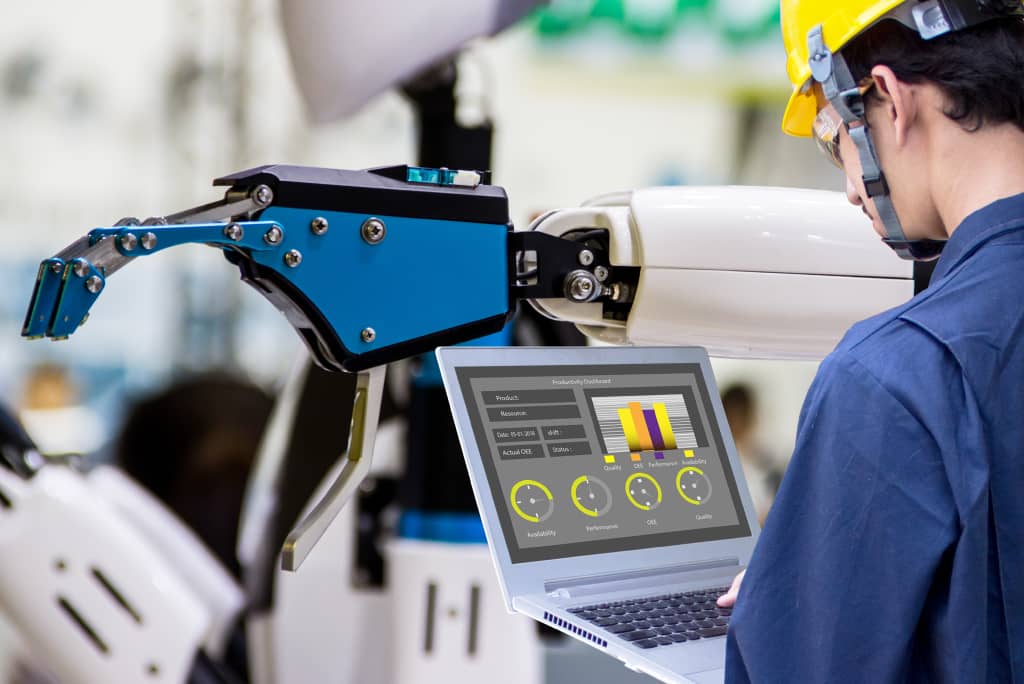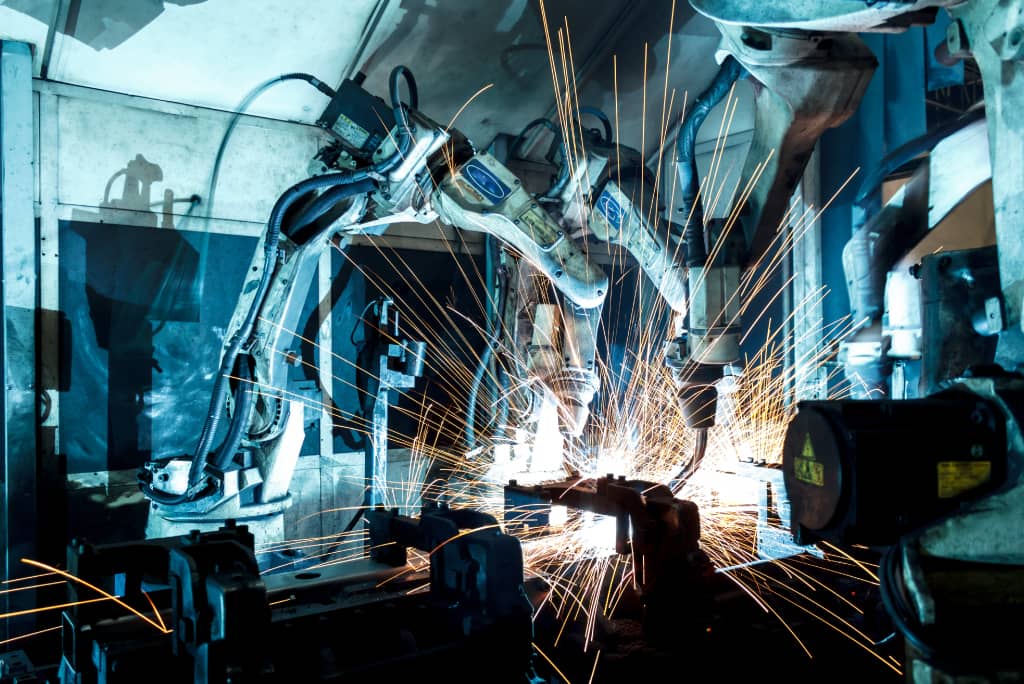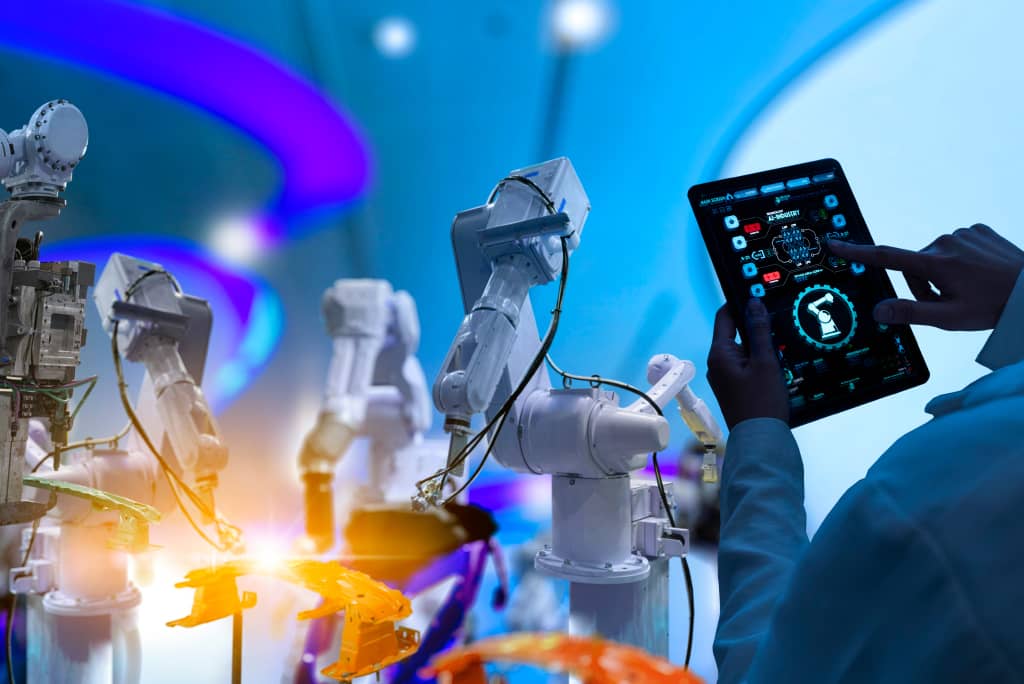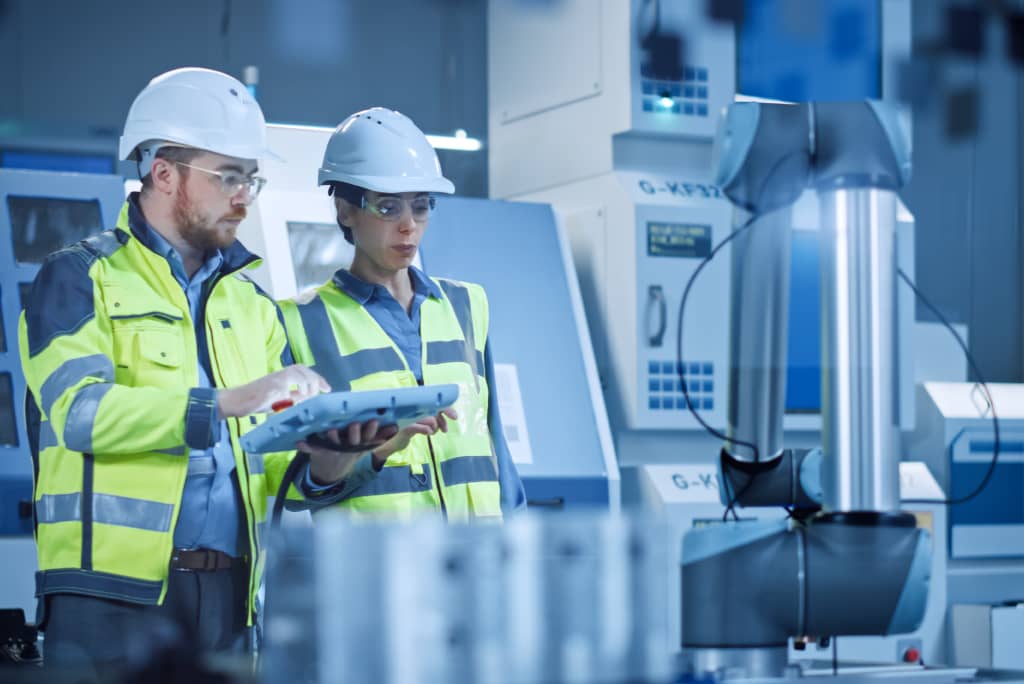RECENT POSTS

What are the Four Types of Industrial Automation? A Comprehensive Guide
As industries move toward enterprise-wide digital transformation, evaluating types of automation for large-scale integration is essential but proves challenging without standards. Through extensive analysis, experienced controls engineers have validated four core categories of industrial automation applicable across diverse use cases:
- Process automation
- Discrete automation
- Batch process automation
- Hybrid automation
Each variant offers unique capabilities today’s facilities increasingly require, from analytics-based process refinements to rapid-changeover versatility, workflow harmonization, and integration optionality.
What are the 4 types of industrial automation? Let’s dig deeper into the individual strengths and targeted applications of these four industrial automation categories shaping Industry 4.0.
Process Automation Systems
Process automation is the prevalent form applied in heavy industries like oil and gas, petrochemical, power, and metals refining to interconnect operational technology controlling physical machines. Key differentiators of process automation include:
- Optimizing large-scale continuous production workflows rather than discrete tasks or formulas
- Using historian software and data analytics for incremental tuning
- Harnessing big data from countless sensors monitoring gradual physical changes
These apply to energy producers, additive manufacturing, food processors, and similar manufacturers.
Process automation can digitally control enormous systems like hydroelectric plants, gas pipelines, or refinery reactors, which never stop.
A few examples from this automation category include:
- A steel foundry leverages automation algorithms to balance furnace temperatures and manufacturing line speeds based on analytics insights.
- Consumer goods manufacturers implement automated conveyors moving high volumes of products to packaging stations aided by optical inspection sensors.
Equipment adjusts constantly based upon hundreds of sensor measurements input to the automation platform rather than binary on/off set points. Centralized industrial control systems gain precision control over massive continuous processes, creating millions in upside.
Discrete Automation Solutions
Contrasting process control, the discrete automation category deals with distinct manufacturing tasks, formulas, recipes, or procedures. Key discrete automation attributes include:
- Automating defined workflows for individual products rather than continual processes
- Production lines feature intelligent modular stations completing sequential steps
- Robotics and automated guided vehicles introduce flexible mobility
These solutions are ideal for electronics fabrication, vehicle construction, medical device assembly, and similar low-volume output requiring agility.
Rather than regulating perpetual reactions inside chemical tanks, discrete automation focuses on assembling specific products from parts via defined workstation sequences, then automated transport to the next creation phases.
Programmable logic controllers store product recipes executed exactly at individual stations—such as precise ingredient mixtures or machinery tooling/fixture configurations. Repeating these pre-established smart automation routines for each item delivers efficiencies at smaller batches or high variability levels impractical manually.
Flexible reprogramming facilitates fast changeovers between product variants using the same lines. Adaptive robotics alter applications to enable vast customization. The discrete automation category boosts productivity within low-volume, high-mix facilities through modular smart stations.
Batch Process Automation Category
The third automation category, called batch process automation, combines elements of continual flow and defined step logic into special hybrid systems managing tedious staged sequences like food production, pharmaceuticals, and specialty chemicals. Batch automation wields distinct features like:
- Coded processing stages including set ingredient formulations and machine instructions
- Translates coded steps into physical equipment activations by stage as batches flow through
- Gain precise control over small and medium batch production runs, requiring reliability and compliance
These solutions are applicable across consumer-packaged goods, life sciences, prescription medicine, and other regulated workflows.
While process automation tunes continual flows and discrete handles products via fully custom stations, batch process automation oversees lengthy production sequences mandated for sectors like pharmaceutical manufacturing. Hundreds of highly precise process stages must be executed reliably— from chemical reactions to sterile environments to ingredients measured impeccably.
Automated batch management software organizes all these steps tied to equipment, then orchestrates activation as each batch flows through strict quality checks between multiple areas like reactions, tablet pressing then packaging. The batch automation architecture, encompassing MES systems and historians, delivers transparency and control not possible manually.
Hybrid Automation Systems Category
Hybrid automation combines dual platforms, like process plus discrete or batch plus discrete, into comprehensive solutions granting ultimate enterprise-wide connectivity. Salient hybrid automation features include:
- Uniting older legacy platforms with modern smart systems
- Migrating away from proprietary environments toward open unified architecture
- Enabling company-wide data integration spanning higher levels like ERP and MRP down through underlying OT automation controls.
These systems are useful for technology convergence roadmaps or acquiring new capability dimensions.
As an example, linking discrete robotics stations through IoT data exchanges up to legacy process automation gives real-time analytics into production effectiveness and quality not previously possible. New insights spawn further improvements across workstations.
Combining discrete flexibility with batch automation compliance tools also aids manufacturers in entering more regulated markets.
Maximizing Safety Through Controls Experts
Attempting substantial integrations without automation engineering specialists courts risks from disconnected architectures, unsupported legacy systems, and insecure data flows. Further dangers arise from lacking compartmentalization or contingency fail-safe standards from safety-focused engineers adhering to functional security tenets during designs.
Partnering with specialty firms exhibiting decades of discrete process expertise across automation categories in your industry ensures infrastructure unity and personnel protection rank as implementation priorities. Verify documented quality management practices confirming structured project data protocols and solution maintenance programs differentiate responsible automation partners.
With trusted experts schooled across technical build competencies plus the adoption of best practices and safety mindsets, modernization journeys proceed smoothly.
If you need expert help with different automation categories and controls engineering solutions, contact Pacific Blue Engineering today at (657) 201-8603 or request a consultation online.
similar posts
Certifications
Contact Us
Telephone:
Corporate Office “The Shop”
Pacific Blue Engineering, LLC
2880 Orange Ave
Long Beach, CA 90755
© All contents copyright © 2023 by Pacific Blue Engineering












